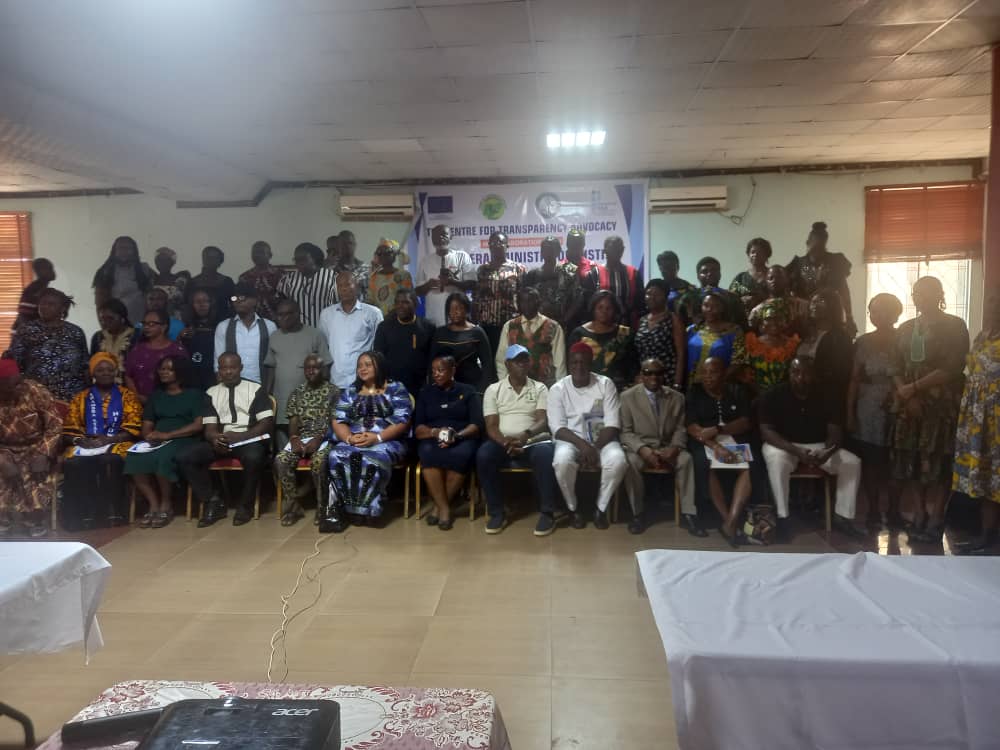The Anambra state government has called for mass enlightenment of critical stakeholders on the provisions and opportunities provided by the Freedom of Information Act (FOIA), in ensuring openness, transparency and accountability in governance.
The state Attorney General
and Commissioner for Justice of Anambra State, Professor Sylvia Chika Ifemeje, made the call during a stakeholders town hall meeting on the application of FOIA in Anambra state, held in Awka, on Thursday.
The town hall meeting, which was organised by the Center for Transparency Advocacy, CTA in collaboration with the Federal Ministry of Justice, with support from the Rule of Law and Anti Corruption (RoLAC), afforded the stakeholders the opportunity to share insights and experiences on the application of the Act in Anambra state.
Ifemeje, who was represented by the state solicitor- General and Permanent Secretary, Ngozi Anuli Iwouno esq. mni, noted that the FOIA 2011 grants citizens legally enforceable right to access records, documents and information held by the government or public institutions, agencies of government and private bodies funded by the government.
She explained that since the signing into law of the FOIA, the citizens have been empowered to participate in governance and hold public officials accountable, having been guaranteed the right to demand access to information.
Ifemeje however noted that apart from apart certain categories of information exempted from disclosure by the FOIA, issues like non-domestication of the act, limited awareness by the citizens of their rights under the act, culture of secrecy within government institutions, inadequate or absence of records, non-compliance and bureaucratic resistance, pose challenges to the effective implementation of the FOIA.
The commissioner called for the domestication of the FoIA in states of the Federation, mass enlightenment, good record keeping and adoption of modern information management system.
She said the ministry of justice is always available to assist the people in getting response to their requests.
Earlier in her welcome address, the Executive Director, Centre for Transparency Advocacy, CTA, Engineer Faith Nwadishi, lamented that the people were yet to maximise or leverage the FoIA to fight corruption.
Nwadishi regretted that 14 years after the law was passed, the citizens the law is meant for were still ignorant of the law.
She recounted that FOIA enables the people to ask questions and demand for accountability in governance.
While recognising the support of the federal ministry of justice in the application of the law, the CTA Executive Director, called on the participants to deepen Public education and application of the FoIA.
On his part, the minister of justice and Attorney General of the Federation, Lateef Fagbemi, assured of the federal government’s unflinching support for the efforts by Civil Society Organisations (CSOs) to popularise the use of Freedom of Information, in ensuring transparency and accountability in governance.
The minister, represented by the Assistant Director/Head FOI Unit in the Federal ministry of justice, Barrister Garuba Godwin, urged the people to make the best use of the Act, as the federal government has directed the MDAs to make government records and documents easily accessible, when duly requested.
The minister, who appreciated CTA and RoLAC for their efforts in popularising the FoIA, enjoined the people to get involved in what the government is doing as it is their right.
He noted that the government is bound to respond to the citizens request through the Act within 7 working days.
In his goodwill message, the Vice President of the Nigeria Union of Journalists (NUJ), South-East Zone, Mr Emmanuel Ifesinachi, called for the establishment of a desk in government ministries for easy accessibility of government information.
After a panel discussion, participants at the townhall meeting, agreed on the need for more public awareness on the Freedom of information Act.
As part of measures to increase awareness of the act, copies of the FoIA were distributed to the participants.
Participants included members of Civil Society Organisations (CSOs), the media, representatives from communities, disability Rights commission, government officials, National Orientation Agency (NOA), National Association of Women Journalists (NAWOJ), Community leaders, among others.
CTA is supported by Rule of Law and Anti Corruption (RoLAC), which is funded by European Union and implemented by International IDEA.

 NEWS1 year ago
NEWS1 year ago
 MUSIC4 years ago
MUSIC4 years ago
 MUSIC4 years ago
MUSIC4 years ago
 MUSIC2 years ago
MUSIC2 years ago
















